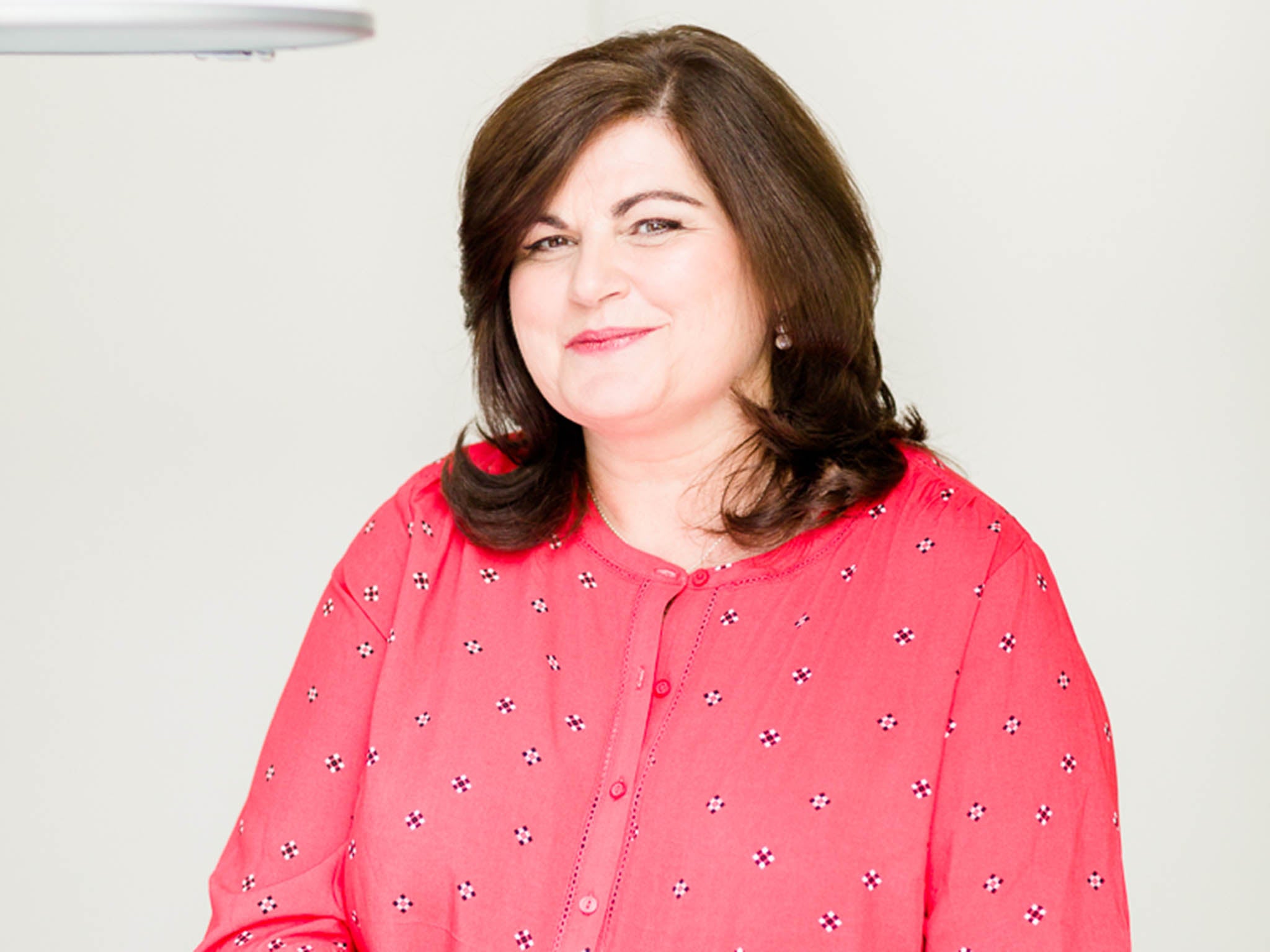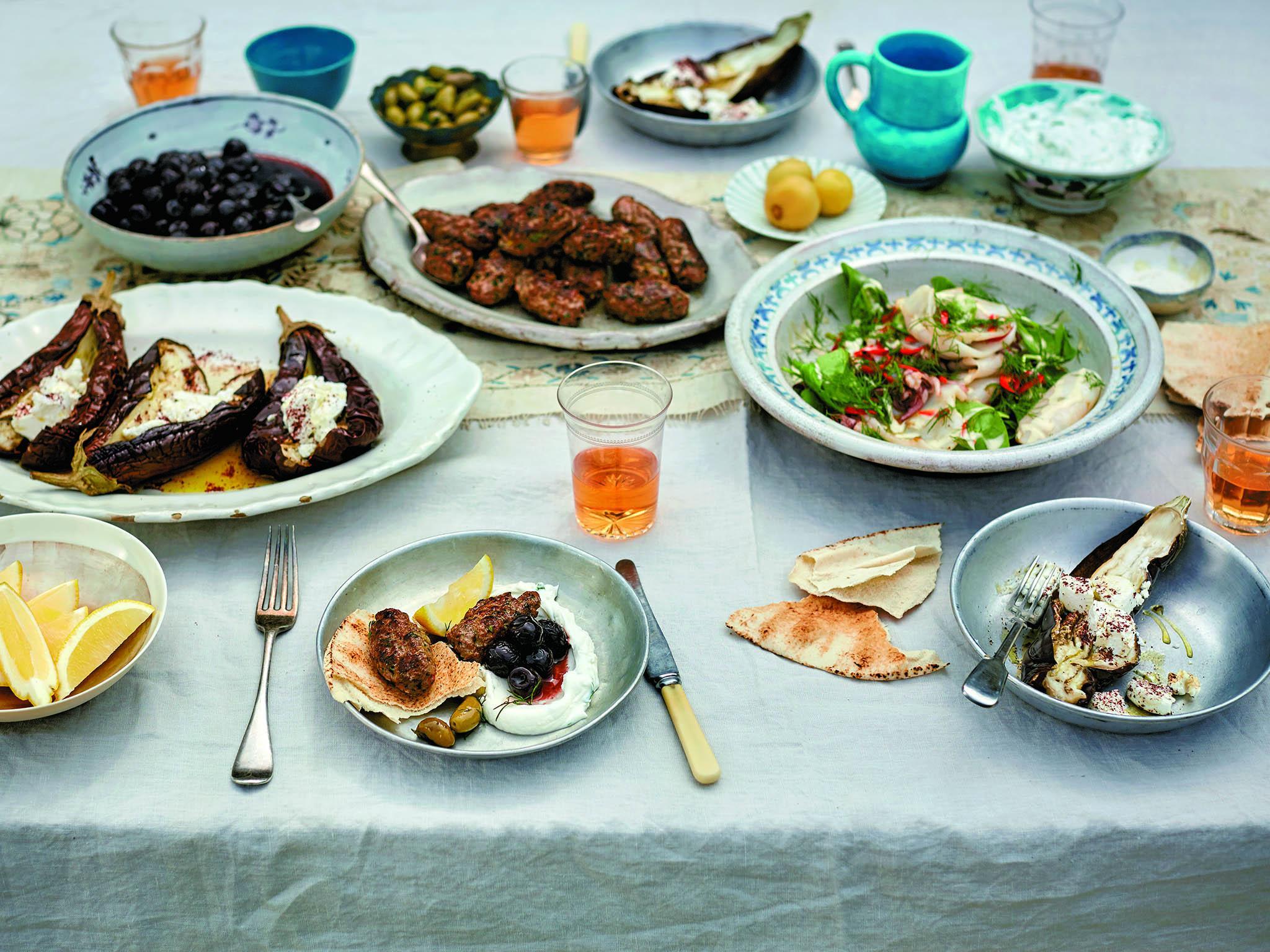Diana Henry on Brexit’s effect on food, a well-stocked larder and not following trends
Zoe Ettinger talks to the food writer about her love of simple cooking and how difficult it is to cook with less cheese and yoghurt


What were some of the favourite recipes you learned growing up in Northern Ireland?
Oh, the usual, and they still form the backbone of my home cooking. Chicken soup, Irish stew, poached and baked salmon, champ (this last one is a dish of mashed potato mixed with chopped spring onions that have been simmered in milk, and lots of butter. It is eaten as a main course, not a side dish).
I also started to make gravlax in my teens, even though it isn’t an Irish dish. We just had such good wild salmon back then. I associate that with home, even though it is Scandinavian.
What inspired you to write your latest book, From the Oven to the Table?
It’s the way I started to cook when I had my first child. He cried the whole time, so I was carrying him round on my hip. He’s now 21, but his arrival had a big impact on how I cooked. I started to look for dishes that I could literally do with one hand, and that was mostly throwing things into a roasting tin. I got good at coming up with ideas, not just for packets of chicken thighs but for rice dishes, too. I liked the ease of it, but I also loved the alchemy, the way dishes just cooked themselves behind the closed oven door.
I have featured quite a lot of this kind of dish in two of my other books – Cook Simple and Simple – but I have always wanted to devote a whole book to dishes that you could just cook in the oven. I now like the approach because I like what it does to food as well – it chars edges, it caramelises, it makes woolly tomatoes and seemingly tasteless apricots sweeter.
Considering your love of travel, which cuisine do you want to master next?
I’d love to cook Vietnamese food better and learn more about food from Cambodia and Thailand as well. I love southeast Asian flavours.
You’ve written many cookbooks, but two of them have ‘simple’ in the title – do you think simplicity is underappreciated in modern cooking?
I think we hear about it an awful lot and yet still watch TV cookery programmes where the food is far from simple. When I say the word ‘simple’, I usually mean that you don’t have to be very experienced as far as techniques go. You still have to be bothered to shop! So, my food is simple in terms of approach but, to make simple dishe,s you need to use flavours – that’s why a well-stocked larder is important.
How do you think Brexit might affect sourcing ingredients from Europe?
I’m very worried about that, especially about how much more expensive it will make cooking. I find it hard to imagine my cooking life without French and Italian ingredients – cheeses, fruit and vegetables in particular.
What ingredients would you say you can’t live without?
Lemons, salt, butter and extra virgin olive oil to cook with. As an eater, I love cheese, bread, well-dressed green salad and all kinds of fruit.
As more people are going meat-free, do you see yourself creating more vegan-and vegetarian friendly recipes?
I have definitely cooked many more vegetable dishes in the last decade, but it’s been a completely natural development. I just really like vegetables. What I find much harder is trying to use cheese and yoghurt less – I actually have to try to do that but I know it’s necessary for the planet. I tend not to push myself to create recipes deliberately to answer a particular trend or ‘need’. I honestly just produce recipes for the kind of food I fancy myself. I don’t force it.
What is the most interesting dish you’ve discovered on your travels?
Little fritters with sandworms in them in Vietnam. If I’d known sandworms were in them, I’d never have eaten them! They also had some austere dishes there, such as boiled white cabbage with chopped boiled eggs and rice vinegar.
Now we’re firmly in autumn, what are your favourite ingredients of the season and how should we be using them now?
This is my favourite season for cooking as I love pumpkin and squash, pears, apples and white truffles. To really get the best out of pumpkin, I roast wedges of it, even when I’m going to use it for soup. Roasting really drives off the moisture and intensifies its sweetness. Pumpkin is used in so many different cuisines, you never run out of ideas for what to do with it.
Tonight, I am making a Thai pumpkin curry, and over the weekend I will do a tomato, pumpkin and cheese gratin to go with roast lamb. Next week, it could be pasta with roasted pumpkin, nutmeg and sage butter.

Pumpkin soup is also one of my favourites and there are so many versions – you can make it with bourbon, with bacon, with Asian spices and coconut milk, with shaved Parmesan, with leeks and mussels, with ginger or with wild mushrooms, I could go on and on. I try to use Crown Prince if I can find it, but butternut squash is a dependable all-rounder if you don’t have much choice
You grew up cooking with your mother and grandmother, but what inspired you to become a food writer?
I had no intention of being a food writer. I worked as a TV producer and director for years, but cooking had been a huge passion and hobby from a very young age. After my first child was born, I went back to working in TV when he was eight months old. I was doing a series for C4 on the history of British gardens in the 20th century. It seemed like a lovely project to take on, but I couldn’t bear being away from my son. I was late home every night and I had to interview people and recce locations at the weekends. After six weeks on the series, I went in one Monday morning and resigned. I wanted to work part-time – I didn’t want to be a full-time mum – and I wanted to work from home.
Friends just said, now is the time – you should write about food. I had no great ambitions, I just wanted to see where it would go, but I had years of knowledge behind me and a sponge-like brain for anything to do with food and cooking.
I got commissioned to write a few articles, I ghost-wrote a book for a famous chef, and then I had my own book commissioned. It just went on from there. I was a TV producer, a trained print journalist, and I’d spent a year at Leith’s School of Food and Wine (I went there when I was 30. I had no idea how important it would be longterm). All these things gave me advantages, especially the TV training, which has been invaluable in producing books.
After being a TV producer at the BBC, what made you want to do Leith’s cooking course?
I initially just took unpaid leave to do a term there – it was a treat to myself, I always intended to go back to TV but, once I’d done one week, I resigned my TV job. I thought I would spend my life dreaming about cooking if I didn’t do it full-time for a while, and I sort of wanted to exorcise it in a way. I almost wanted to be less obsessive, but it only made me worse. I still didn’t want to be a chef or a food writer at the end of that year, though. It was purely for personal fulfilment. I went back to TV straight after it, so it was never part of a ‘change of life’ plan.
You’ve won so many awards over the years – is there one that means the most to you?
The two James Beard Nominations, and winning a James Beard Award was huge. I love the States, and the judging on these awards is highly scrutinised and very strict. It was something I used to dream about but never really thought I would win.
Do you have a favourite cuisine?
That’s really hard to answer. French food started me off – I went on a life-changing stay with a French family when I was 15 – then I fell in love with Middle Eastern and Vietnamese food when I moved to London. Then everyone fell for Italian food.
I would say that Californian food – which encompasses influences from the Med, Mexico, southeast Asia – is my favourite, if that makes any sense. I really fell in love with the San Francisco cooking of the 1980s. Alice Waters at Chez Panisse made me see food in a completely new way. She truly knew what simple and seasonal meant, she was way ahead of the curve.
Who in the food world has inspired you throughout your career?
Jane Grigson as a writer, plus Claudia Roden, also as a writer, and as someone who showed me that food always comes from a cultural context; and Alice Waters as a cook and visionary.
Read more about Diana Henry on her website dianahenry.co.uk
Join our commenting forum
Join thought-provoking conversations, follow other Independent readers and see their replies
Comments
Bookmark popover
Removed from bookmarks